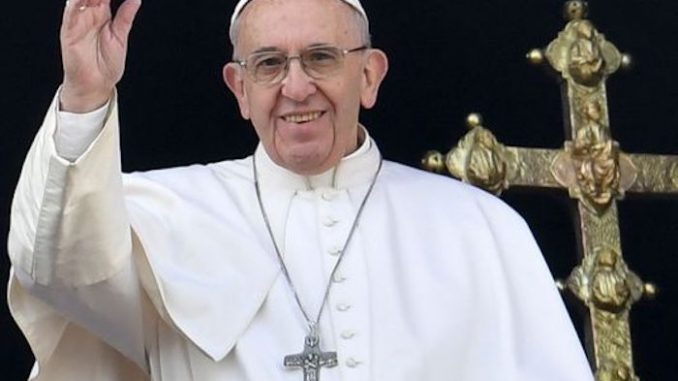
Pope Francis has announced controversial plans to revise the English wording of the Lord’s Prayer so that includes references to Satan.
According to Francis, the prayer erroneously asks God to “lead us not into temptation.” The pontiff claims that the wording should be altered to include Lucifer to make it clear that God is not who led humans to sin.

BYPASS THE CENSORS
Sign up to get unfiltered news delivered straight to your inbox.
You can unsubscribe any time. By subscribing you agree to our Terms of Use
Latest Video
Theguardian.com reports: He told the TV2000 channel: “It is not a good translation because it speaks of a God who induces temptation.”
He added: “I am the one who falls; it’s not him pushing me into temptation to then see how I have fallen.
“A father doesn’t do that, a father helps you to get up immediately. It’s Satan who leads us into temptation, that’s his department.”
The 80-year-old also highlighted that the Catholic church in France had adapted the prayer, and uses the phrase “do not let us fall into temptation” instead.
The two versions of the Lord’s Prayer most commonly used in England both say “lead us not into temptation”.
“I’m not aware of any plans to change the translation in the English-speaking world but you can certainly see the logic of doing so,” said Austen Ivereigh, the pope’s biographer.
“It is not God who tempts us into sin but the enemy of human nature. But tradition and familiarity are also important factors in weighing up any decision to modify a translation.”
The Rev Ian Paul, an Anglican theologian, said the pope’s comments would make traditionalists nervous.
“The word in question is peirasmos [from New Testament Greek] which means both to tempt and to be tested. So on one level the pope has a point. But he’s also stepping into a theological debate about the nature of evil.
“In terms of church culture, people learn this prayer by heart as children. If you tweak the translation, you risk disrupting the pattern of communal prayer. You fiddle with it at your peril.”
The Lord’s Prayer, which is memorised by millions of Christians across the world, appears in the Bible.


